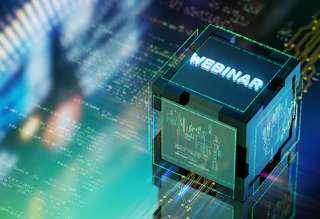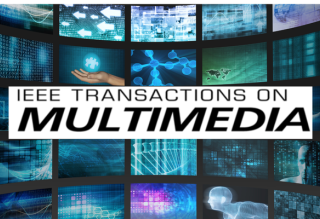- Our Story
- Publications & Resources
- Publications & Resources
- Publications
- IEEE Signal Processing Magazine
- IEEE Journal of Selected Topics in Signal Processing
- IEEE Signal Processing Letters
- IEEE Transactions on Computational Imaging
- IEEE Transactions on Image Processing
- IEEE Transactions on Information Forensics and Security
- IEEE Transactions on Multimedia
- IEEE Transactions on Signal and Information Processing over Networks
- IEEE Transactions on Signal Processing
- IEEE TCI
- IEEE TSIPN
- Data & Challenges
- Submit Manuscript
- Guidelines
- Information for Authors
- Special Issue Deadlines
- Overview Articles
- Top Accessed Articles
- SPS Newsletter
- SigPort
- SPS Resource Center
- Publications FAQ
- Blog
- News
- Dataset Papers
- Conferences & Events
- Community & Involvement
- Professional Development
- For Volunteers
- Information for Authors-OJSP
-
Home
Waveforms for Computing Over the Air: A groundbreaking approach that redefines data aggregation
Ode to Masterfully Written Textbooks: And remembering Simon Haykin [From the Editor]
Conferences Events IEEE Signal Processing Magazine IEEE SPL Article IEEE TIFS Article IEEE TMM Article IEEE TSP Article Jobs in Signal Processing Lectures Machine Learning Seasonal Schools Signal Processing News SPM Article SPS Distinguished Lectures SPS Newsletter Article SPS Webinar SPS Webinars SPS Webinar Series Webinar webinars -
Our Story
What is Signal Processing?

The technology we use, and even rely on, in our everyday lives –computers, radios, video, cell phones – is enabled by signal processing. Learn More » -
Publications & Resources
-
SPS Resources
- Signal Processing Magazine The premier publication of the society.
- SPS Newsletter Monthly updates in Signal Processing
- SPS Resource Center Online library of tutorials, lectures, and presentations.
- SigPort Online repository for reports, papers, and more.
- SPS Feed The latest news, events, and more from the world of Signal Processing.
-
SPS Resources
-
Conferences & Events
-
Community & Involvement
-
Membership
- Join SPS The IEEE Signal Processing Magazine, Conference, Discounts, Awards, Collaborations, and more!
- Chapter Locator Find your local chapter and connect with fellow industry professionals, academics and students
- Women in Signal Processing Networking and engagement opportunities for women across signal processing disciplines
- Students Scholarships, conference discounts, travel grants, SP Cup, VIP Cup, 5-MICC
- Young Professionals Career development opportunities, networking
- Get Involved
-
Technical Committees
- Applied Signal Processing Systems
- Audio and Acoustic Signal Processing
- Bio Imaging and Signal Processing
- Computational Imaging
- Image Video and Multidimensional Signal Processing
- Information Forensics and Security
- Machine Learning for Signal Processing
- Multimedia Signal Processing
- Sensor Array and Multichannel
- Signal Processing for Communication and Networking
- Signal Processing Theory and Methods
- Speech and Language Processing
- Technical Working Groups
- More TC Resources
-
Membership
-
Professional Development
-
Professional Development
- Signal Processing Mentorship Academy (SigMA) Program
- Micro Mentoring Experience Program (MiME)
- Distinguished Lecturer Program
- Distinguished Lecturers
- Distinguished Lecturer Nominations
- Past Lecturers
- Distinguished Industry Speaker Program
- Distinguished Industry Speakers
- Distinguished Industry Speaker Nominations
- Industry Resources
- IEEE Training Materials
- Jobs in Signal Processing: IEEE Job Site
-
Career Resources
- SPS Education Program Educational content in signal processing and related fields.
- Distinguished Lecturer Program Chapters have access to educators and authors in the fields of Signal Processing
- Job Opportunities Signal Processing and Technical Committee specific job opportunities
- Job Submission Form Employers may submit opportunities in the area of Signal Processing.
-
Professional Development
-
For Volunteers
-
For Board & Committee Members
- Board Agenda/Minutes* Agendas, minutes and supporting documentation for Board and Committee Members
- SPS Directory* Directory of volunteers, society and division directory for Board and Committee Members.
- Membership Development Reports* Insight into the Society’s month-over-month and year-over-year growths and declines for Board and Committee Members
-
For Board & Committee Members
Popular Pages
Today's:
- Information for Authors
- IEEE Transactions on Multimedia
- (ASRU 2025) 2025 IEEE Automatic Speech Recognition and Understanding Workshop
- IEEE Transactions on Information Forensics and Security
- IEEE Transactions on Image Processing
- IEEE Signal Processing Letters
- Call for Papers for ICASSP 2026 Now Open!
- Information for Authors-SPL
- Submit a Manuscript
- Membership
- (ICME 2026) 2026 IEEE International Conference on Multimedia and Expo
- Governance Documents
- IEEE Journal of Selected Topics in Signal Processing
- IEEE Transactions on Audio, Speech and Language Processing
- Conference Call for Papers
All time:
- Information for Authors
- Submit a Manuscript
- IEEE Transactions on Image Processing
- IEEE Transactions on Information Forensics and Security
- IEEE Transactions on Multimedia
- IEEE Transactions on Audio, Speech and Language Processing
- IEEE Signal Processing Letters
- IEEE Transactions on Signal Processing
- Conferences & Events
- IEEE Journal of Selected Topics in Signal Processing
- Information for Authors-SPL
- Conference Call for Papers
- Signal Processing 101
- IEEE Signal Processing Magazine
- Guidelines
Last viewed:
- Multimodal Information Based Speech Processing (MISP) 2023 Challenge: ICASSP 2024
- Signal Processing Cup
- IEEE Journal of Selected Topics in Signal Processing (JSTSP) Special Series on AI in Signal & Data Science -- Toward Large Language Model (LLM) Theory and Applications
- PTH-Net: Dynamic Facial Expression Recognition Without Face Detection and Alignment
- IEEE Transactions on Image Processing
- 2025 14th International Symposium on Image and Signal Processing and Analysis (ISPA)
- Joint Edge Optimization Deep Unfolding Network for Accelerated MRI Reconstruction
- IEEE Transactions on Computational Imaging
- IEEE Signal Processing Letters
- IEEE Transactions on Multimedia
- Conferences
- Information for Authors
- Series to Highlight Women in Signal Processing: Dr. Jian Li
- Point Cloud Visual Quality Assessment Challenge - ICIP 2023
- (QoMEX 2018) 2018 10th International Conference on Quality of Multimedia Experience
Introduction to the Issue on Perception-Driven 360° Video Processing
You are here
Journal of Selected Topics in Signal Processing
Publications & Resources
For Authors
Top Reasons to Join SPS Today!
1. IEEE Signal Processing Magazine
2. Signal Processing Digital Library*
3. Inside Signal Processing Newsletter
4. SPS Resource Center
5. Career advancement & recognition
6. Discounts on conferences and publications
7. Professional networking
8. Communities for students, young professionals, and women
9. Volunteer opportunities
10. Coming soon! PDH/CEU credits
Click here to learn more.
Introduction to the Issue on Perception-Driven 360° Video Processing
Recent years have witnessed the rapid development of virtual reality (VR). Above 90% of VR content is in the form of 360° video, also called omnidirectional video or panoramic video. Generally speaking, 360° video offers immersive and interactive viewing experience, as the viewers are able to freely move their heads in the range of 360° × 180° to access different viewports. Therefore, the perception of 360° video is significantly different from that of traditional video. It is thus necessary to study the perception model of 360° video. On the other hand, the perception model can be used to significantly remove the redundancy of 360° video by predicting viewports and eye fixations of the viewers. Due to this, the perception model plays a crucial role in improving efficiency and efficacy of 360° video processing, such as compression and visual quality assessment (VQA).
To bridge the gap between the perception model and application for 360° video, this special issue released Call for Papers outlining the topics on the state-of-the-art research, innovations, and applications of perception-driven 360° video processing. Then, this special issue attracted many submissions in the filed of 360° video processing, in particular perception-driven signal processing methods for 360° videos or images. Afterwards, the Guest Editors handled a rigorous review process, and 16 papers were finally accepted and published in this special issue.
SPS Social Media
- IEEE SPS Facebook Page https://www.facebook.com/ieeeSPS
- IEEE SPS X Page https://x.com/IEEEsps
- IEEE SPS Instagram Page https://www.instagram.com/ieeesps/?hl=en
- IEEE SPS LinkedIn Page https://www.linkedin.com/company/ieeesps/
- IEEE SPS YouTube Channel https://www.youtube.com/ieeeSPS
Home | Sitemap | Contact | Accessibility | Nondiscrimination Policy | IEEE Ethics Reporting | IEEE Privacy Policy | Terms | Feedback
© Copyright 2025 IEEE - All rights reserved. Use of this website signifies your agreement to the IEEE Terms and Conditions.
A public charity, IEEE is the world's largest technical professional organization dedicated to advancing technology for the benefit of humanity.











